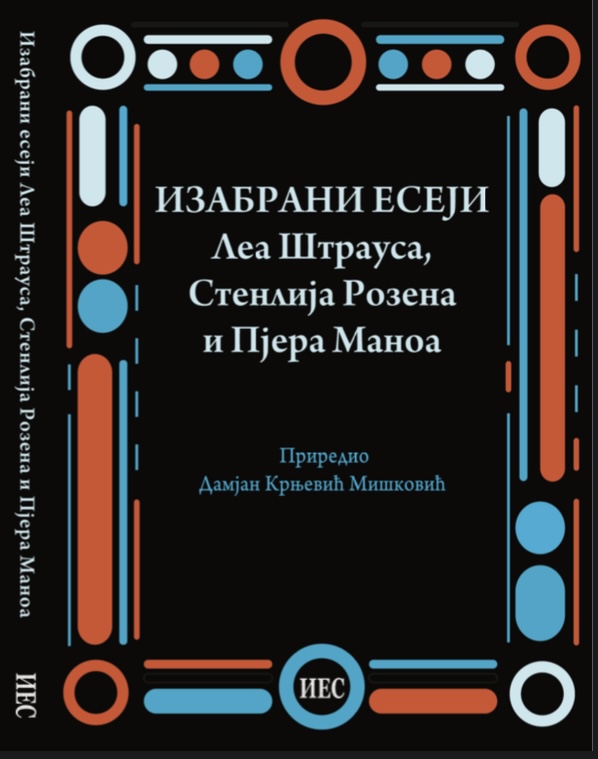We present to you the new book by Professor Damjan Krnjević Mišković, “Selected Essays
of Leo Strauss, Stanley Rosen, and Pierre Manent”, published by the Institute of European
Studies. Damjan Krnjević Mišković is Professor of Practice in Geopolitics at ADA
University in Baku (Azerbaijan), Director of Policy Research at its Institute for Development
and Diplomacy, and the editor-in-chief of the journal Baku Dialogues. From 2004 to 2013, he
successively served as a senior advisor to the President of Serbia, the Minister of Foreign
Affairs of Serbia, and the President of the UN General Assembly. He later became the
Executive Director of the Center for International Relations and Sustainable Development
(CIRSD) and editor of its journal Horizons, while in previous years, he was also the
managing editor of the Washington-based journal The National Interest.
In this book, the author has selected and translated several essays by three of the most
important political philosophers of the last hundred years – Leo Strauss and two of his most
prominent students, Stanley Rosen and Pierre Manent. With this book, Serbian readers are
offered a unique introduction not only to the approach of political phenomenology (which
Prof. Krnjević defines in his thorough Introduction as “the logos or reasoning about the
phainomena or appearance of the human situation, as accomplished from the point of view of
the appearance itself. The practice of political phenomenology thus begins with a reasoned
investigation into the human situation from within the phenomena of politics itself: of man
and his world as it is, not as it could or ought to be.”), but also an opportunity to better
understand, through the thoughts of these political philosophers, some of the processes
unfolding today in our nation, society, and country – including the question of whether the
Serb nation fully belongs to Europe. As Prof. Krnjević writes, the main criterion for
answering this fundamental question of identity for what Isidora Sekulić called a ‘little
people’ is “predicated on particularizing the universal by turning to actual historical
circumstances. It can be stated as follows: to belong fully to Europe, a given nation must have
had its initial encounter between reason and revelation, between philosophy and (in this case)
Christianity, at the right time and in the right set of circumstances.”

